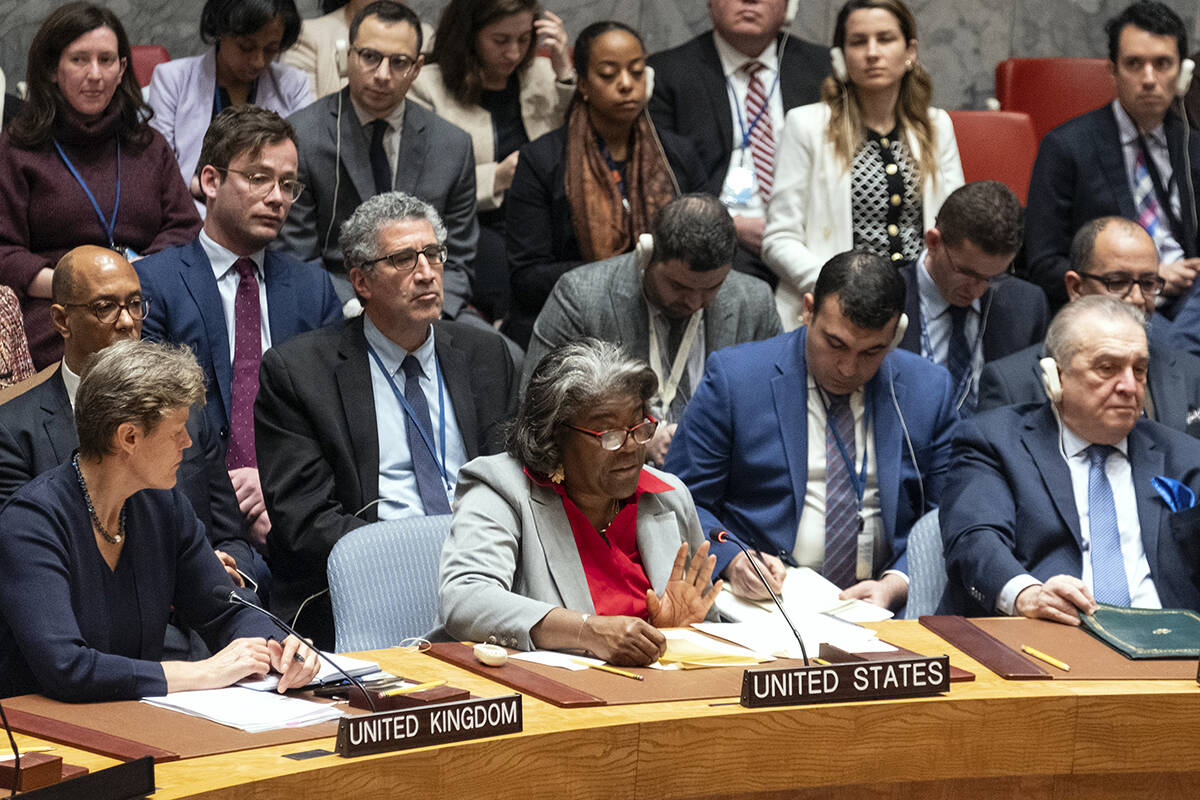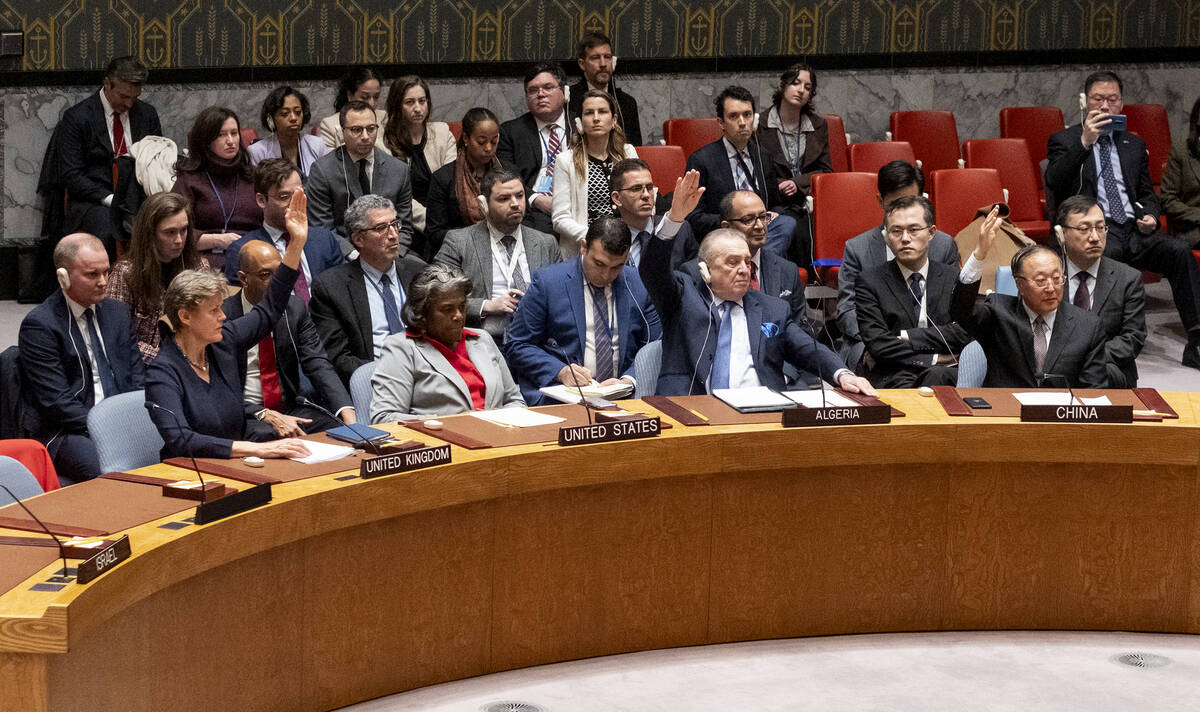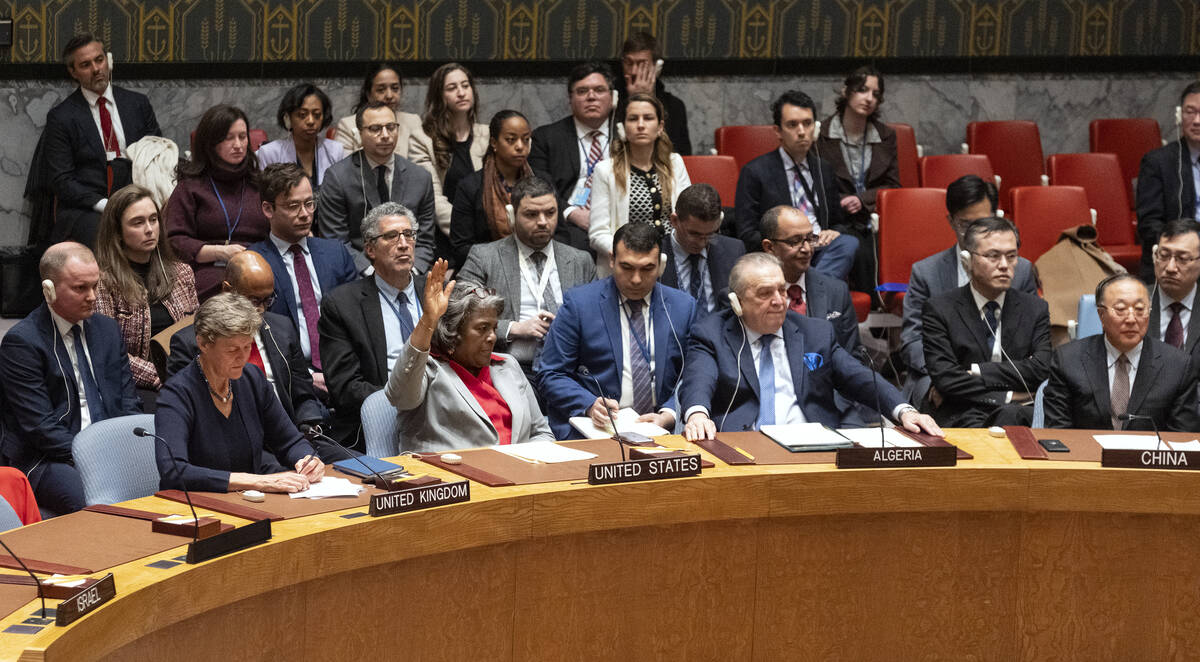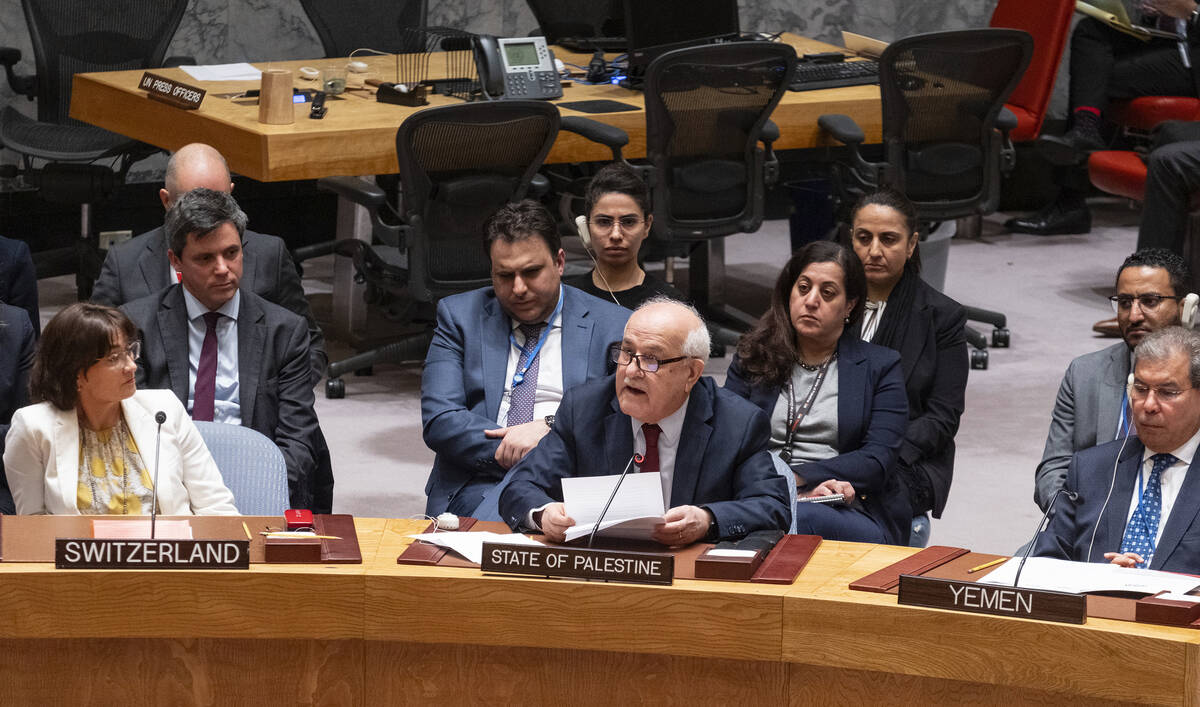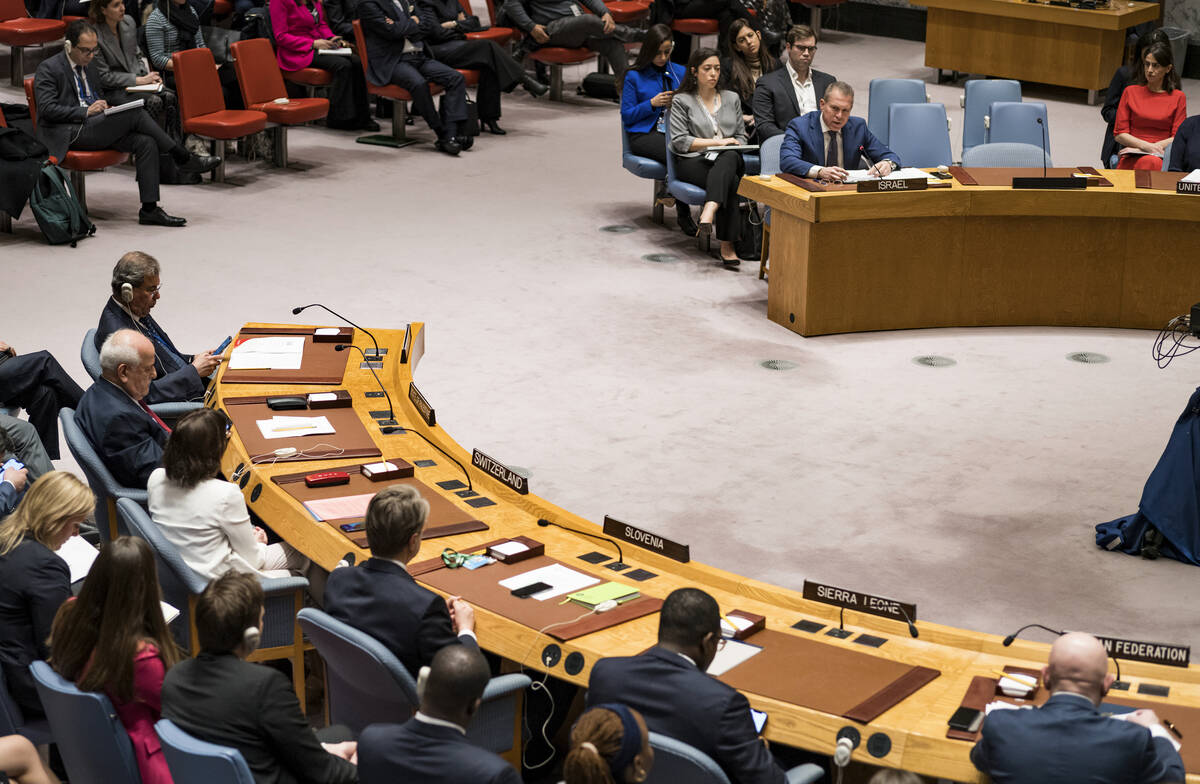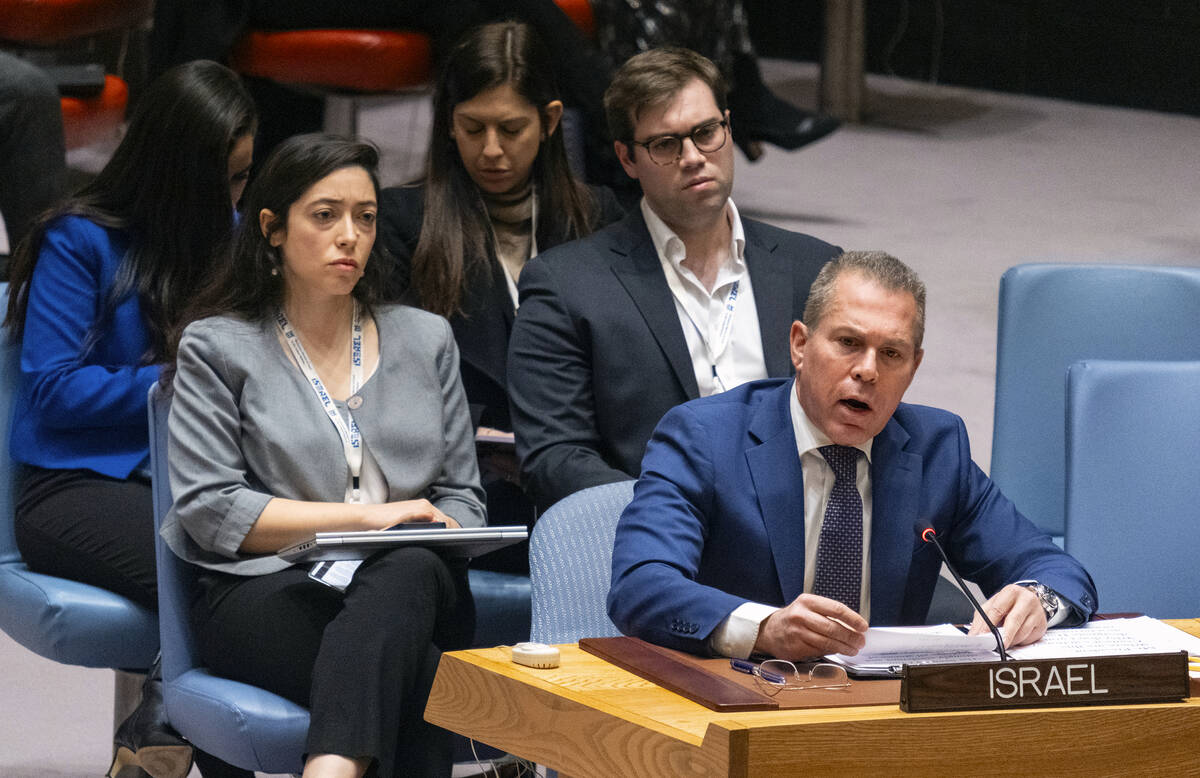US abstains as UN demands Gaza cease-fire
UNITED NATIONS — The United Nations Security Council on Monday issued its first demand for a cease-fire in Gaza, with the U.S. angering Israel by abstaining from the vote. Israel responded by canceling a visit to Washington by a high-level delegation in the strongest public clash between the allies since the Israel-Hamas war began.
Prime Minister Benjamin Netanyahu accused the U.S. of “retreating” from a “principled position” by allowing the vote to pass without conditioning the cease-fire on the release of hostages held by Hamas terrorists.
White House national security spokesman John Kirby said the administration was “kind of perplexed” by Netanyahu’s decision. He said the Israelis were “choosing to create a perception of daylight here when they don’t need to do that.”
Kirby and the American ambassador to the U.N. said the U.S. abstained because the resolution did not condemn Hamas terrorists.
The 15-member council approved the resolution 14-0 after the U.S. decided not to use its veto power on the measure, which also demanded the release of all hostages taken captive during the Oct. 7 Hamas terrorist attack in southern Israel.
The U.S. vetoed past Security Council cease-fire resolutions in large part because of the failure to tie them directly to the release of hostages, the failure to condemn the Hamas terrorist attacks and the delicacy of ongoing negotiations.
American officials have argued that the cease-fire and hostage releases are linked, while Russia, China and many other council members favored unconditional calls for cease-fires.
The resolution approved Monday demands the release of hostages but does not make it a condition for the cease-fire for the month of Ramadan, which ends in April.
Hamas said it welcomed the U.N.’s move but said the cease-fire needs to be permanent.
“We confirm our readiness to engage in an immediate prisoner exchange process that leads to the release of prisoners on both sides,” the group said. For months, the terrorists have sought a deal that includes a complete end to the conflict.
Because Ramadan ends April 9, the cease-fire demand would last for just two weeks, though the draft says the pause in fighting should lead to “a sustainable cease-fire.”
The U.S. ambassador to the U.N., Linda Thomas-Greenfield, said the resolution “spoke out in support of the ongoing diplomatic efforts,” adding that negotiators were “getting closer” to a deal for a cease-fire with the release of all hostages, “but we’re not there yet.”
She urged the council and U.N. members across the world to “speak out and demand unequivocally that Hamas accepts the deal on the table.”
Thomas-Greenfield said the U.S. abstained because “certain edits” the U.S. requested were ignored, including a condemnation of Hamas terrorists.
The resolution, put forward by the 10 elected council members, was backed by Russia and China and the 22-nation Arab Group at the United Nations.
Under the United Nations charter, Security Council resolutions are legally binding on its 193 member nations, though they are often flouted.



